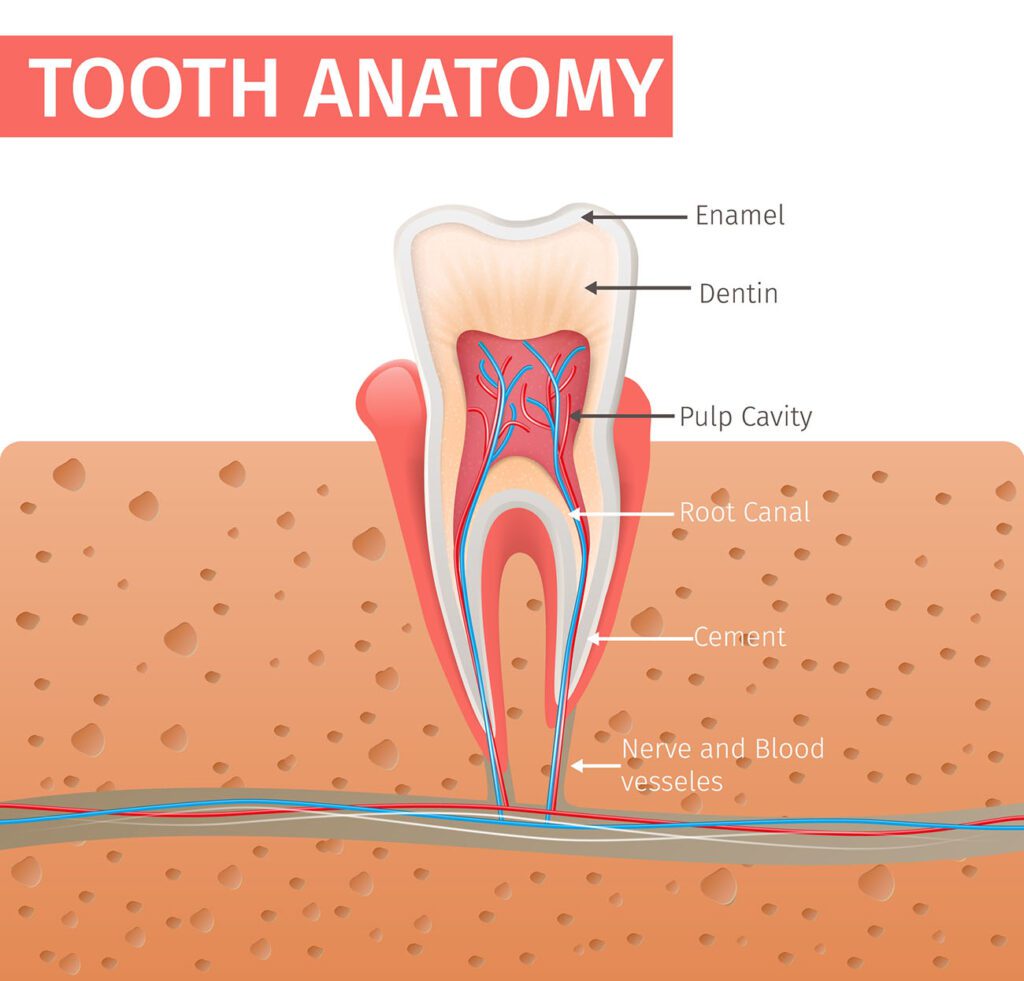With many dental concerns, there is often a variety of treatment options available. But some situations require specific procedures for best results. A root canal in Arlington Heights, IL, could be your best choice to help alleviate pain and avoid a tooth extraction. Root canals are usually the last line of defense for preserving and protecting your natural tooth. While it’s natural to feel apprehensive before your appointment, a root canal tends to relieve more pain than it may cause.

What is a Root Canal in Arlington Heights, IL?
Our teeth are made up of multiple layers with the outer enamel layer being the strongest. At the inner layer, known as the root canal, our teeth are connected to the rest of our bodies via nerves and blood vessels. If decay or disease reaches this layer, our inner pulp can become infected.
An infected pulp will swell and push against the hard casing of your tooth. This often leads to sharp pain, discomfort, and high sensitivity. If left untreated, an infection that deep could cause your tooth to deteriorate and even fall out. The infection could spread to the rest of your mouth as well. A root canal appointment aims to extract the infected pulp and preserve your oral health.
How it Works
Before starting treatment, your dentist will take an X-ray of the affected tooth. This will help them identify the infected pulp and could help guide their treatment. Next, they’ll use a local anesthetic to numb the area. Many patients report feeling pressure during the procedure, but you should feel little to no pain. If you do experience pain, be sure to let your dentist know, as the anesthetic may not have been effective.
Once your mouth is numb, your dentist will drill a small hole in your tooth to reach the inner layer. They’ll then use specialized extraction tools to remove the infected pulp. Most patients experience immediate relief from pain and discomfort once the process is complete.
Restoration
Although the official root canal procedure is complete after the pulp is removed, your full treatment isn’t finished yet. Your dentist will apply a biocompatible resin to fill in the hole they drilled. However, this often isn’t enough to fully protect your tooth. Your dentist will likely recommend getting a dental crown to help prevent further damage and keep your tooth strong.
If you have an inner infection, your tooth could be at risk for extraction. At AH Smiles, we provide root canal appointments right from the comfort of our office. The sooner you remove an infected pulp, the more likely you are to preserve your natural tooth. Call our office today at (847) 230-9703 to schedule a consultation and learn more about the root canal process.
